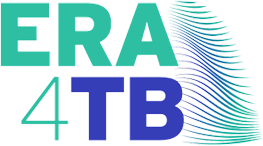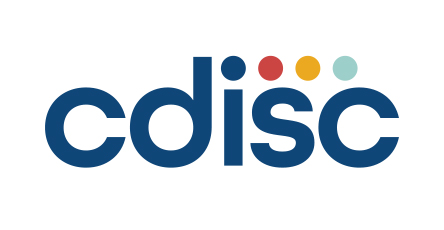UA Colleges of Law and Pharmacy, Critical Path Institute, Launch Graduate Certificate Program in Regulatory Science
Designed for graduate students and working professionals, the certificate program provides specialized training in navigating the path from research to bringing medical products to market.

TUCSON, Ariz., September 25, 2018 — The University of Arizona and the Critical Path Institute have launched a new online graduate certificate program designed to equip students and working professionals across multiple disciplines with core competencies in regulatory science. Regulatory science is the science of developing new tools, standards and approaches to assess the safety, efficacy, quality and performance of all products regulated by the U.S. Food and Drug Administration.
 “There is a large and growing need for current and future pharmaceutical and medical device professionals, regulators, business leaders and scientists to have specialized training in translating research into new interventions for safe and effective medical products,” said Tara Sklar, JD, MPH, director of the Graduate Certificate in Regulatory Science and professor with the University of Arizona Law.
“There is a large and growing need for current and future pharmaceutical and medical device professionals, regulators, business leaders and scientists to have specialized training in translating research into new interventions for safe and effective medical products,” said Tara Sklar, JD, MPH, director of the Graduate Certificate in Regulatory Science and professor with the University of Arizona Law.
The Graduate Certificate in Regulatory Science program is offered through University of Arizona Law in collaboration with the UA College of Pharmacy and the Critical Path Institute (C-Path). The program is accepting applications for courses that will begin in January 2019.
“This program provides a background for graduate students and professionals to influence and directly participate in the field of regulatory science,” said John-Michael Sauer, PhD, executive director of the Predictive Safety Testing Consortium at C-Path and pharmacology professor at the UA College of Medicine – Tucson. “In connection with our work at the Critical Path Institute, we provide students the knowledge and tools to accelerate medical product development.”
Describing the core competencies in the program, Christopher Robertson, JD, PhD, associate dean for research and innovation and professor with UA Law said, “Students will gain specific insight into how the U.S. Food and Drug Administration is structured and how it regulates drugs, biologics, devices and diagnostics, from early discovery and development to bringing products to market. Courses feature an in-depth focus on policies, ethics, regulations and processes covering basic science work, pre-clinical trials and post-marketing responsibilities.”
“All five of the courses are developed by academics from law and the health sciences, along with industry leaders to ensure there is direct application from what is taught to what is needed in the regulatory science workforce,” said Sklar. “Students will be able to complete the coursework within a year and all credits may be applied to a Master of Legal Studies degree.”
The certificate is one of several new offerings in the UA College of Pharmacy aimed at expanding and refining skills for students enrolled in a health sciences graduate program and for practicing professionals.
“We are committed to provide more options for students and professionals to market themselves within targeted areas where specific expertise, such as regulatory science, is needed,” said Rick G. Schnellmann, PhD, dean of the UA College of Pharmacy.
For more information, or to apply to the Graduate Certificate in Regulatory Science program, please visit law.arizona.edu/health-law-certificates or email law-health@email.arizona.edu. Deadline for applications is Dec. 15, 2018.

About the University of Arizona James E. Rogers College of Law
Founded in 1915, the University of Arizona James E. Rogers College of Law is one of the nation’s leading law schools and is the only law school that offers degrees at every stage of higher education, from undergraduate (in collaboration with the School of Government and Public Policy) through doctoral. University of Arizona Law has a national reputation for providing students with an exceptional, individualized education and abundant practical training opportunities in a collegial and intellectually challenging atmosphere. With 15 clinics, 12 dual-degree programs, and 16 concentrations and certificate programs, plus top-ranked faculty and robust career support, University of Arizona Law provides students with every possible resource to transform their passions and skills into fulfilling careers. More at law.arizona.edu.

About the University of Arizona College of Pharmacy
The University of Arizona College of Pharmacy is the premier pharmacy college in the Southwest, and one of the top in the nation, focused on drug discovery, toxicology, pharmaceutics, outcomes sciences, pharmaceutical education and research through interprofessional training and collaborative public/private partnerships. Preparing pharmacists and pharmaceutical scientists in undergraduate, professional, graduate and post-doctoral programs, the college embraces an entrepreneurial spirit, providing tailored educational opportunities to broaden students’ experiences. As the first health sciences college at the UA, the college has a long history of improving science and health both in Arizona and around the world. For more information, please visit pharmacy.arizona.edu.

About Critical Path Institute
Critical Path Institute (C-Path) is an independent, nonprofit organization established in 2005 as a public and private partnership. C-Path’s mission is to catalyze the development of new approaches that advance medical innovation and regulatory science, accelerating the path to a healthier world. An international leader in forming collaborations, C-Path has established numerous global consortia that currently include over 1,500 scientists from government and regulatory agencies, academia, patient organizations, disease foundations, and dozens of pharmaceutical and biotech companies. C-Path is headquartered in Tucson, Ariz., with additional staff in multiple remote locations. For more information, visit c-path.org.
C-Path Contact:
Kissy Black
+1.615.298.1144
kissyblack@lotosnile.com







